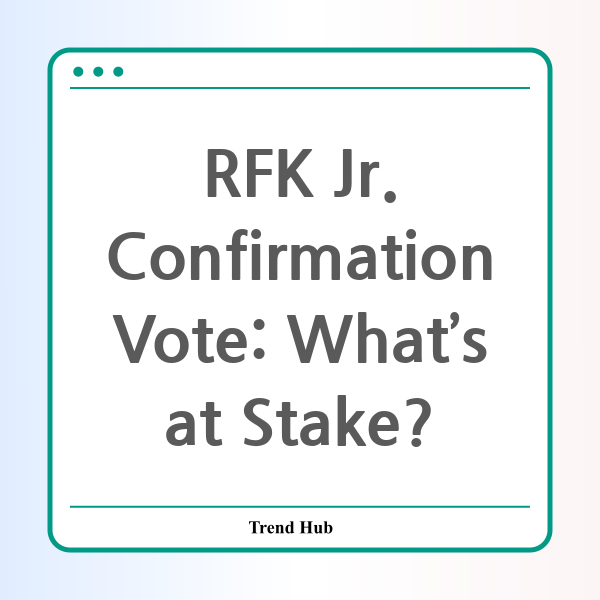* This website participates in the Amazon Affiliate Program and earns from qualifying purchases.

As the Senate gears up for the final confirmation vote on Robert F. Kennedy Jr. as America’s Health Secretary, many are left wondering about the implications of this decision. Will Kennedy’s controversial views on health policies and vaccines shift the landscape of public health? This critical moment is not just about one person; it’s about the future direction of health initiatives in the United States.
On Wednesday morning, the Senate voted 53-47 along party lines to cut off debate surrounding Kennedy’s nomination, bringing him one step closer to leading the Department of Health and Human Services (HHS). The anticipation is palpable, as the vote could occur as soon as Thursday. With the political climate charged and polarized, every vote counts.
A pivotal figure in this nomination process has been Senate Health Committee Chair Bill Cassidy (R-La.), a doctor himself, who played a crucial role in securing Kennedy’s approval from the Senate Finance Committee despite initial reservations about Kennedy's reluctance to disavow misinformation regarding vaccines. Cassidy’s support is seen as a significant endorsement that could sway other Republicans to back the nomination.
However, the confirmation is not without its critics. Some notable figures, such as Pennsylvania Democrat John Fetterman, have expressed their opposition to Kennedy's appointment, arguing that his stances could undermine trust in public health policies. In contrast, Maine Republican Susan Collins has voiced her support, illustrating the complex dynamics at play within the Senate.
During his confirmation hearings, Kennedy articulated his vision for the role, emphasizing a commitment to combating chronic diseases, which he attributes to environmental pollution and unhealthy food additives. He criticized the current health framework for focusing too heavily on infectious diseases, indicating a need for a paradigm shift within health agencies.
As the Senate prepares for the final vote, several key questions linger: What will Kennedy’s leadership mean for public health policies? Can he bridge the gaps caused by partisan divides, particularly regarding vaccine misinformation? And how will his focus on chronic diseases reshape health initiatives in a nation grappling with both infectious outbreaks and long-term health challenges?
A successful confirmation could signal a new direction for HHS, potentially prioritizing chronic health issues that have been at the forefront of American healthcare discussions. However, it also raises concerns regarding the dissemination of accurate health information in an era where misinformation runs rampant. Ultimately, the Senate's vote on RFK Jr. will not just shape the future of the HHS Department but will also reflect the broader political challenges and societal attitudes regarding health in America. As the nation watches closely, the implications of this confirmation could have lasting effects on public trust and health policy effectiveness.
* This website participates in the Amazon Affiliate Program and earns from qualifying purchases.